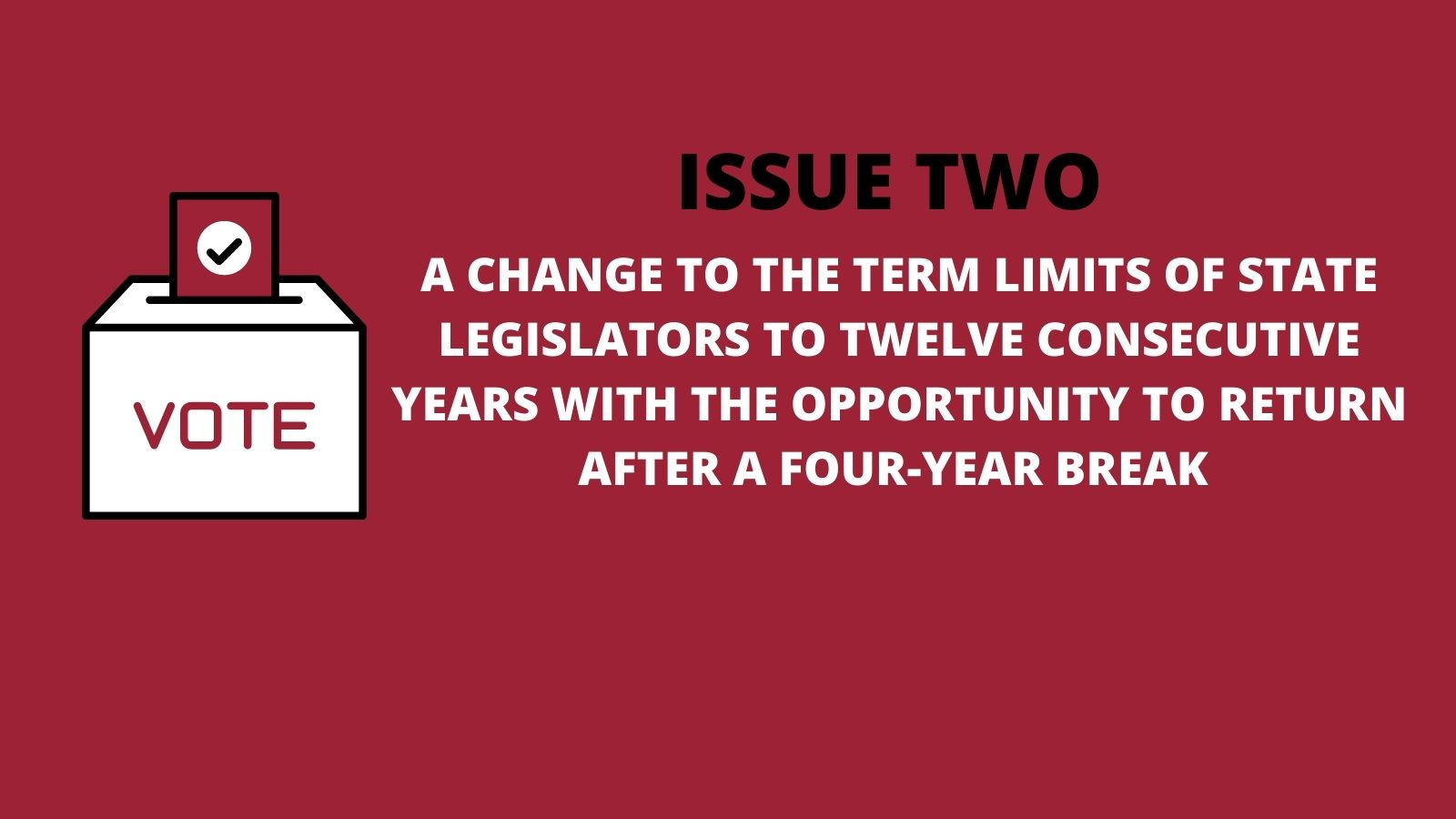By: Sean Rhomberg
FAYETTEVILLE, Ark. — One issue that appears on the Washington County ballot will look to change the structure of term limits for Arkansas state politicians.
As it appears on the ballot, issue 2 aims to impose term limits of 12 consecutive years for state legislators with the opportunity to return after a four-year break. A “yes” vote will support the change, while a “no” will oppose the measure and keep the current term limit for state legislators at 16 years.
Political Science Professor Andrew Dowdle said this is not an issue foreign to the Arkansas ballot.
“Arkansas in 1994 passed what were some of the most restrictive term limits in the country,” Dowdle said. This issue in 1994 limited state representative terms to six years and state senator terms to eight years.
Issue 3, which was passed in 2014, increased the combined lifetime term limit for state politicians to 16 years. Dowdle said that while this technically increased the combined term limit for politicians, once a politician’s term was up they were banned for life.
Like most issues presented on the ballot, issue 2 has those who support and oppose the proposed measure.
Dowdle said that opponents of the measure think of it as creating faux term limits.
“The people who are supporters of term limits as a whole, some of the national and state organizations, have criticized this as simply being a granting of a lifetime tenure.”
The annual Arkansas Poll, directed by Professor of Political Science Janine Perry, shows a majority of voters support the proposed issue.
The poll shows that 60% of voters who were asked support the issue with 40% saying they are opposed.
Dowdle said that Arkansas may be tackling term limits in a relatively unique way. “This is the first time that I have heard about this,” Dowdle said. “I’m sure that other states do this, but I think it is relatively rare.”
He also said that he anticipates the results of the poll to reflect the way that voters decide on election day.
“Traditionally based on track record, especially when you have contests where there are very clear poll results, the polls tend to be accurate on these ballot questions.”
If voters were to approve the measure, it would go into effect for those politicians elected in the year 2021 or after.


